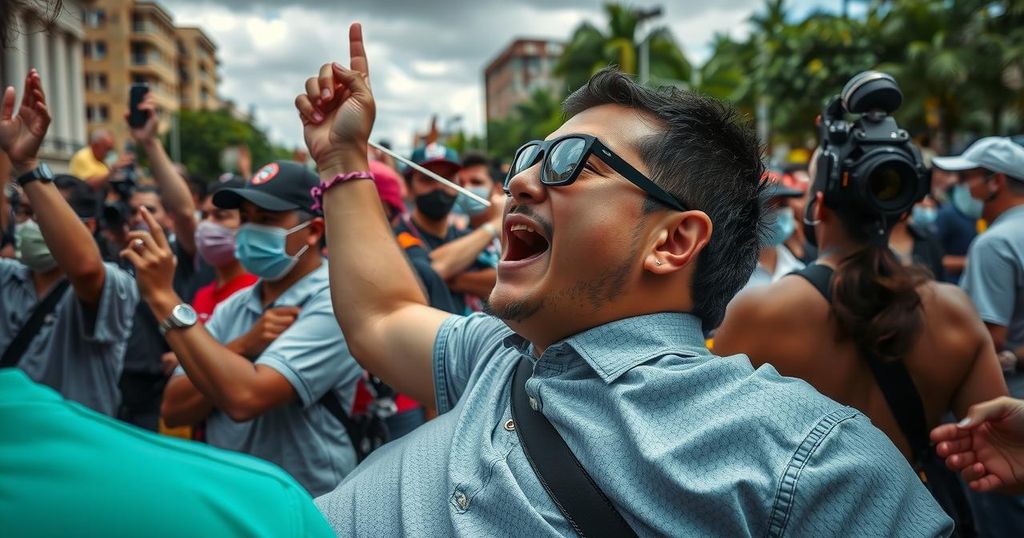Venezuela has announced the release of 146 election protesters, part of a total of 1,515 released amidst post-election unrest following a disputed election. The government faces significant criticism for its actions, with calls for international support for the opposition leader Edmundo Gonzalez, who claims victory in the election and plans to return to Venezuela despite arrest threats.
The Venezuelan government, under the leadership of President Nicolas Maduro, has announced the release of 146 individuals detained during post-election protests that followed the controversial presidential election held on July 28. Attorney General Tarek Saab disclosed on Monday that this release is part of a larger initiative that has seen a total of 1,515 individuals freed from custody since the government’s crackdown on demonstrators began. This announcement is particularly significant as it coincides with the approaching swearing-in ceremony for President Maduro’s disputed third term on January 10.
In the weeks leading up to this election, the Maduro administration faced heavy criticism after his main opposition candidate, Edmundo Gonzalez, was declared the winner in numerous precincts according to opposing factions. However, the government hastily proclaimed Maduro as the victor without providing the traditional voting results details, which ignited protests across the nation. Human rights organizations have reported that the government detained approximately 2,000 individuals amidst these protests, with claims that 23 people lost their lives as a result of the unrest.
In addition to the mass detentions, Venezuela’s highest court and election authorities have ratified Maduro’s election outcome, while the government has accused the opposition of colluding with external forces to undermine Venezuela’s sovereignty. Opposition leaders contend that the government-controlled institutions that validated Maduro’s victory are devoid of legitimacy, asserting that Gonzalez won the election by a substantial margin. Meanwhile, Gonzalez fled to Spain after a court issued an arrest warrant against him for alleged usurpation of powers and conspiracy, with the Maduro administration attempting to capture him, even offering a reward for information regarding his location.
Interior Minister Diosdado Cabello has made a stern promise to detain Gonzalez if he returns to Venezuela, despite Gonzalez’s declaration to reclaim his presidential role following the inauguration. As he engages in international diplomacy from countries such as Argentina, he is expected to meet with former President Biden at the White House. The extent of influence that international recognition of Gonzalez may have on the Maduro regime remains an open question, as the administration is set to commence a new term amid widespread criticism relating to human rights violations and the ongoing economic crisis that has prompted millions to flee the country.
The political climate in Venezuela has been mired in controversy and turmoil, particularly surrounding the recent presidential elections. President Nicolas Maduro’s administration has faced allegations of electoral fraud and human rights abuses, prompting significant public unrest. Following a disruptive election period on July 28, the government’s crackdown on dissent resulted in numerous protests, widespread detentions, and claims of violence against demonstrators. The situation exacerbated with the opposition’s claims of a fraudulent electoral process, which has led to divisions within the country and strained relations with international actors.
In conclusion, the release of 146 protesters by the Venezuelan government highlights the ongoing political strife in the country, which has grappled with accusations of electoral misconduct and oppressive governance. As President Maduro prepares for his third term amid mounting dissent and international scrutiny, the opposition remains poised to challenge the legitimacy of his leadership. The political landscape continues to evolve, with efforts by the opposition leader Gonzalez to reclaim his position and strengthen support from the international community, underscoring a period of significant uncertainty in Venezuela’s future.
Original Source: www.aljazeera.com






